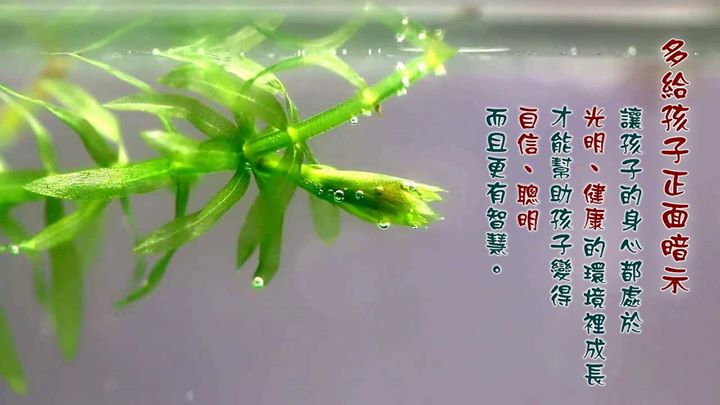孩子青春期的叛逆如何面對?
.
是甚麼東西在責罵中,包含著愛;嘮叨裡,透露著關心;沉默時,兜著牽掛;眉宇間,總盼兒平安,這就是「母愛」…
.
週末就是母親節了,記得要常抽空回家探望父親、母親,就算是一通電話,一聲問候,都是給父母親最珍貴的禮物。
.
因為愛,不在嘴上,不在物質和名相上,而是在心裡。。。
祝福天下的父親、母親:身體健康,吉祥如意!同時祝福大家,闔家幸福、美滿。
.
———————————————————————————————————-
我來自於馬來西亞_名字叫葉嘉俊,法名:來孝。
過去,我特別叛逆,和父母的關係很糟糕,和他們談不到3句就要吵起來。吵架時我根本無法控制自己的情緒,對著父母罵髒話、拍桌子、甚至有想打父母的衝動。其實,我知道父母很愛我,只是隨著自己慢慢長大,我對他們嚴格的管教越來越反感。
.
國中二年級時,我交了一個女朋友,一天放學後我因為陪女朋友比較晚回家,母親因為擔心就播了通電話給我,問我在哪裡,我莫名的一股氣衝上來,就在電話中和母親大吵起來。回到家,母親問我電話中怎麼回事,我還理直氣壯的說:「正常打電話而已,沒什麼啊!」爸爸氣急了,打了我一巴掌。從那以後,我和父母的冷戰就開始了。我不和他們一起吃飯,不說話,我們知謙隔了後後的冰層。
.
2016年7月我大學畢業了,找了3個月的工作都沒找到,心情很沮喪的時候,母親要我一起去參加「念佛班」,我敷衍的答應了。開始我完全不理會人,也不和人說話,他們要我做什麼我就做什麼,到了第四天,在為父母念佛的時候,過去和父母吵架的畫面,像演電影似的一幕幕湧進腦海,我開始為自己過往對父母親不敬的行為感到愧疚不已,眼淚控制不住地往下流。
.
懺悔之後,我的心中感到前所未有的輕鬆。當聽到金菩提宗師講到:「身為子女,要做好子女的本份,要孝順,不要做傷害父母的事情、說傷害父母的話。」我決定不再傷父母親的心了。從那天之後,我改變了對父母的態度,開始懂得感恩父母、學著理解,並且關心他們。
.
現在,面對父母的關心和照顧,我會開心地接受,還會和父母一起坐著看電視、聊天,家中的氣氛變得很溫馨,真的好享受這種感覺!
.
感謝媽媽當初遞給我的那張報名表,那是我成長過程中收到的,最寶貴的禮物。讓我變得正向陽光、內心柔軟,並且懂得感恩!今年年初,我又一次突破了自己,給爸爸媽媽傳了簡訊,對他們說:「爸爸媽媽我愛你們!」
.
.
#積極、#正向陽光、#葉嘉俊、#叛逆期、#青春熱血、#親情、#感恩rnrnHow do we manage our children’s rebellious adolescent years?
What is it –
in the scolding that exudes love;
in the nagging that reveals care;
in the silence that reflects concern;
between the cease of the forehead that always long for the safety and peace of the children? It is “motherly love”..
This weekend is Mother’s Day. We must remember to find time to return home often to visit our fathers and mothers. Even if it is a phone call, or a simple greeting, these are the most precious gifts for our parents.
This is because love is not merely expressed in speech, in material gifts or gestures in names or appearances, but from the heart… May all the fathers and mothers in the world be blessed with good health, auspiciousness and fulfilling lives! Similarly, may everyone be blessed with familial bliss.
I am Jiajun Ye, from Malaysia. My Dharma name is Laixiao. In the past, I was particularly rebellious and had a poor relationship with my parents. We would quarrel after speaking no more than 3 sentences. I couldn’t control my emotions at all during the arguments, and would be rude to my parents, slam the desk, and even harbor the urge to hit them. In reality, I know that my parents love me, but as I grew up, I became more and more frustrated by their strict discipline.
In the second year of middle school, I befriended a girl. One day after school, I was late for home as I accompanied my girlfriend. My mother was concerned and called to ask my whereabouts. At that moment, an inexplicable anger in me exploded and I had a big quarrel with her on the phone. Back home, my mother asked me what happened. I was unrepentant, saying, “(it was) only a normal conversation, nothing to be concerned about!” Dad was most flustered, and gave me a slap. Since then, cold war began between my parents and I. Daily activities with them such as during mealtimes were in silence, as there was now a “thick layer of ice” between us.
In July 2016, I graduated from university, but struggled for 3 months without finding work. At my most depressed state, my mother asked me to attend a “chanting class”. I agreed only half-heartedly. At the beginning, I totally ignored the class and was not engaged, only doing as I was told. On the fourth day, when the class chanted for our parents, past scenes of the quarrels with my parents flash-backed before me like a movie reel in action. I began to feel ashamed of my disrespectful behavior toward my parents, and tears streamed uncontrollably.
After the repentant chanting, my heart felt a sense of calm that I had never experienced. When I heard Master Jin Bodhi’s advice that, “as children, we should fulfill our obligations, be filial, and do not do hurtful things to our parents”, I resolved never to hurt my parents anymore. From that day on, I changed my attitude towards my parents. I began to be thankful, and learned to understand and care for them.
.
Now, I happily embrace the care and concern of my parents, accompany them in enjoying TV shows, and have chats with them. It is now a warm atmosphere at home, and most delightful!
I’m most thankful to my mother who had handed me the application form for the class. It is the most precious gift in my growing up years. It inspired me toward the illuminated path, develop an amiable heart and appreciate gratitude! At the beginning of this year, I achieved another breakthrough, as I sent a message to mum and dad expressing, “Mom and Dad, I love you!
#Proactive, #TowardIlluminatedPath, #JiajunYe, #RebelliousStage, #HotBloodedTeenager, #FamilialAffection, #Gratitude


